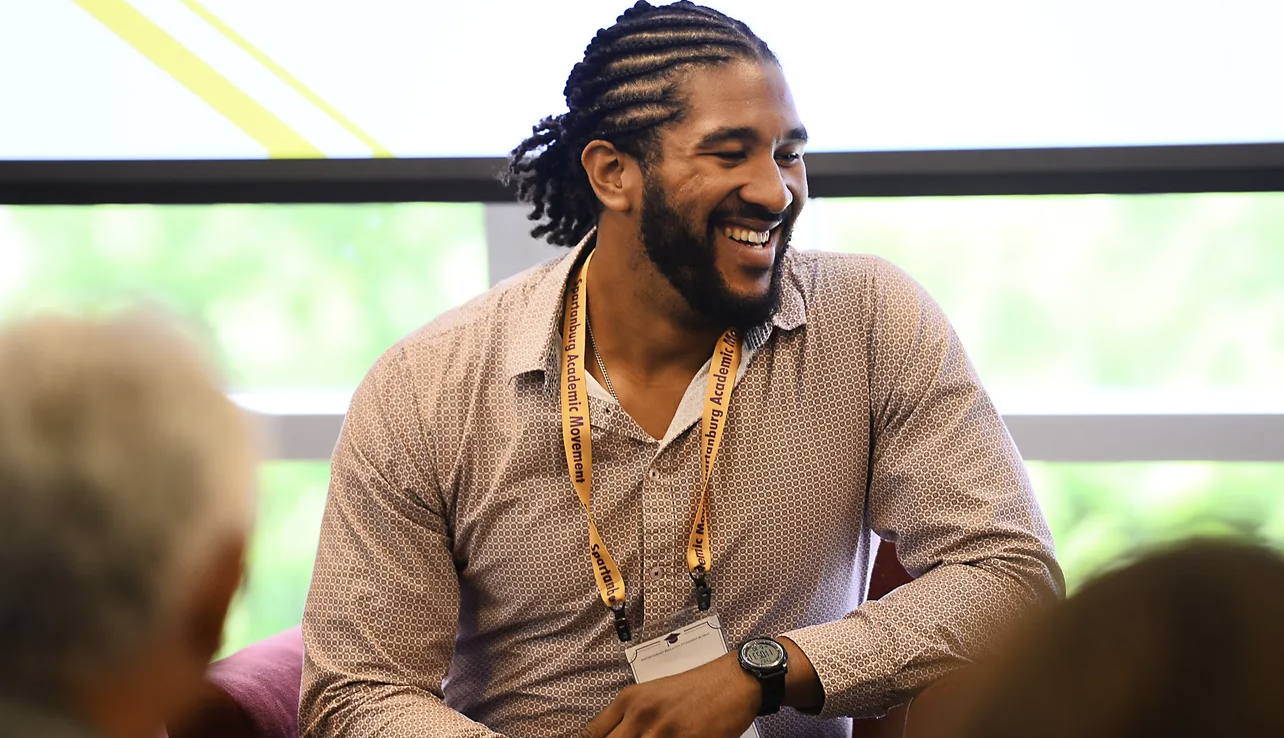Institutions of higher education are focused on student retention and achievement. Converse University's Will Case shares what Converse has implemented to keep students:
engaged, enrolled and successful.
The Division of Student Development and Success at Converse University utilizes numerous mechanisms to support student retention. Connections to campus begin with the First-Year Experience that includes a first-year (FYS) and student success seminar (SSS). Students select an FYS/SSS pairing that aligns with their interests, and the experience aids in establishing community and connectedness to campus. FYS instructors also serve as the academic advisors to students in their respective FYS courses, thus establishing relationships that extend beyond the classroom.
Coupled with this academic introduction is our "52 days of programming" sponsored by our Student Life organizations.
For the first 52 days Converse ensures that there is a program or event each day of the week, thus providing opportunities to engage with the campus community up through Fall Break. Early retention is inevitably linked to students feeling a strong connection to campus, and our programmatic efforts strive to ensure that students feel a sense of belonging in their first few weeks at Converse.
Another great resource is our Center for Academic Excellence (CAE).
The CAE provides academic support services to assist students in becoming independent and effective life-long learners. The CAE provides a space for students to work independently or in small groups. The CAE houses tutoring and peer mentor support, and our Director works with students to develop the skills needed for success in all aspects of life.
Students experiencing academic or personal barriers are supported through our Converse Cares team. Comprised of faculty and staff, the Cares team reviews student success concerns and provides targeted support to help students overcome obstacles and remain successful in their intended paths.
Meet Will Case
Will Case is the Associate Provost for Student Success and Associate Professor of Chemistry at Converse University. He also serves as the co-director of the Nisbet Honors Program. Prior to joining the Converse faculty he served as the Director of Chemistry Labs at the University of Richmond from 2007-2015. He was the recipient of the SCICU Excellence in Teaching Award for Converse in 2017, The Creative and Scholarly Achievement Award in 2019, and the Joe Ann Lever Award of Excellence in 2022. He was also the recipient of a SC IDeA Network of Biomedical Research Excellence (INBRE) Target Faculty grant in 2015 to support his research into biosensor development.
Will is a native of Spartanburg and a graduate of Dorman High School. He received his BS in chemistry and AB in Spanish from Duke University and his PhD in chemistry from Rensselaer Polytechnic Institute. Outside of Converse he has served as the Chair of Western Carolinas Local Section of the America Chemical Society and the Director of the Upstate Pride March & Festival held annually at Barnet Park.








